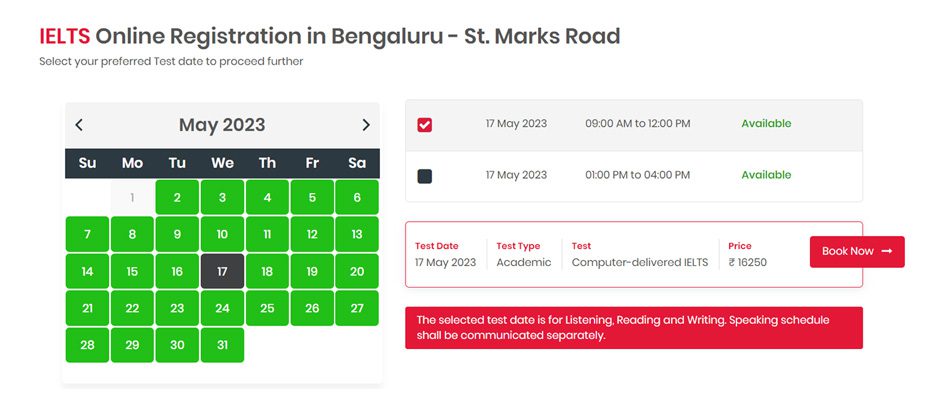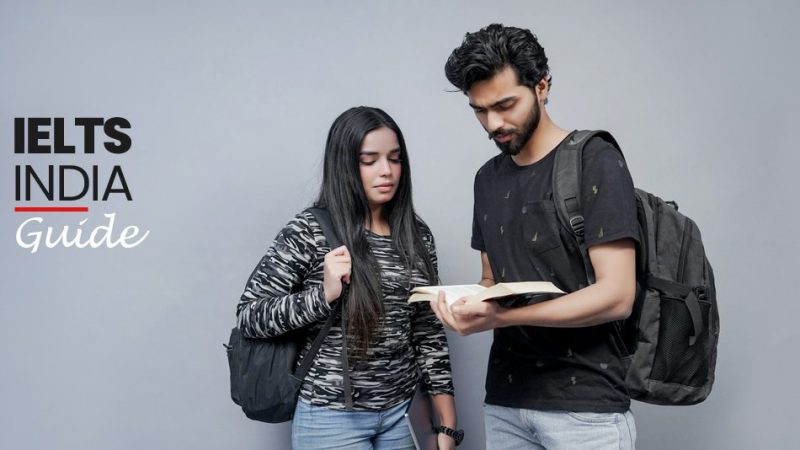The International English Language Testing System (IELTS) is a standardized test used to assess English Language proficiency in non-native speakers. In India, the IELTS is administered by the British Council, Cambridge Assessment English (CAE), and IDP Education.
The IELTS India test score is accepted by thousands of academic institutions and organizations worldwide. In India itself, it is accepted by universities, colleges, and higher education institutions that require an excellent command of the language in all its aspects. It is also accepted by government agencies for visa and immigration purposes, and by prospective employers who look for expert skills in the language for job positions.
The IELTS India score is also accepted in countries where English is the primary language of communication like the US, the UK, Australia, Canada, and New Zealand. The IELTS exam is useful for anyone who wants to demonstrate their English Language proficiency for academic, professional, immigration, and self-development purposes.
Exams are scored on a scale of 0 to 9, where 0 indicates that the candidate did not attempt the test, and 9 represents expert proficiency in the language. The overall score is the average of the scores achieved in each of the four sections of the exam.
What is the Format of the IELTS Exam
The IELTS exam is divided into 4 sections: Reading, Writing, Listening, and Speaking. The total time allotted is 2 hours and 45 minutes. The Listening, Reading, and Writing are taken in one sitting. The test on the Speaking section may be taken on the same day or 7 days before or after the scheduled exam date.
IELTS India is available in two formats: Academic and General Training. The Academic format is for those who plan to study at a university or institution where English is the primary language of instruction. The General Training is for those who plan to work or train in an English-speaking country, or for immigration purposes.
Eligibility and Requirements for IELTS India

There are no specific eligibility criteria for taking the IELTS India exam, but you must be of 16 years of age and above and have a valid ID proof for registration. You should also have a minimum level of English language proficiency before taking the exam. Study and preparatory materials for the exam can be sourced online or offline. Regular practice and mock sessions in all aspects of the language (reading, writing, speaking, and listening) will help you to crack the test with flying colors. You must familiarize yourself with the format of the exam before attempting it.
When Can You Take the IELTS in India?
The IELTS India exam is available to be taken throughout the year. The candidate has the privilege to book test dates and the testing center as per their choice and convenience. However, we would recommend that you register for the exam at least two weeks before the desired exam date to ensure availability.
Though the exam fee is subject to change, as of 2023, the IELTS India exam will cost anywhere between 14,700 and 15,000 INR. This makes the exam quite affordable compared to the other English Language proficiency examinations. Please note here that the cost of the exam varies depending on the location and test center.
How to Register for IELTS India?

There are several ways to register for the IELTS India exam.
Online Registration: If you wish to register for the test online, you must visit the British Council or IDP IELTS India website. Create an account in your name with relevant personal details like name, address, date of birth, etc, and then select a test date and location. Pay the exam fee using a credit or debit card.
In-person Registration: You can also visit a British Council or IDP IELTS India test center in person to register for the exam. Obtain a registration form from the center, fill it up with your personal information, choose your exam date, and then pay for the registration either by cash or using a credit/debit card.
Postal Registration: Alternatively, you can register for the IELTS India exam by post. Download a registration form from the British Council or IDP IELTS India website, fill it out, and then send it by post along with a demand draft or bank transfer for the exam fee.
Please remember to provide a valid passport or national ID for identification purposes. Please register in advance so that test dates are available to you, and be careful to choose the correct test format (Academic or General Training) based on your purpose of taking the exam.
Who to Contact for Registration?
To register for the IELTS India exam, you can contact the British Council or IDP IELTS India. These two organizations are the main administrators of the exam in India.
You can visit the British Council website and follow the links to the IELTS section. From there you can find information about the test centers, available test dates, and register for the exam.
Alternatively, you can visit the IDP IELTS India website and follow the links to the IELTS section. You will get all the relevant information on the page, and then proceed to register for the exam.
If you have any questions related to the registration process or exam fee, you can also contact their customer support teams by email, phone, or in person at the test centers. Both organizations have dedicated support teams to handle student concerns. To reach support at IDP India, you can call 1800-102-4544 or write to ielts.india@idp.com. As for British Council, you can get assistance by calling 0120-4569000 /6684353.
How to Check Scores for IELTS India?
The IELTS exam results are typically released 13 calendar days after the paper-based test date, and 7 days after the computer-based test date. The dates may also vary from location to location and from center to center.
You will receive an email notification when the IELTS results are available for viewing online. The test results will include a score for each of the test sections on a band scale from 0 to 9.
You can access your results online by logging into the test center’s website with your login credentials. You will also receive a physical copy of the test report by post.

